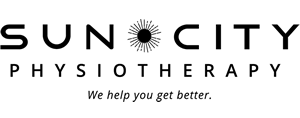Pointe Dance
Starting dance on pointe is an exciting milestone for any dancer. Ballerinas often dream of putting on a pair of pointe shoes and gliding seemingly effortlessly across the stage. While pointe work is beautiful, it is not a normal functional movement, and nowhere near effortless. The demands of pointe work open the door to many possible injuries in the feet, ankles, and other parts of the body. It is for this reason that a Pre-Pointe Assessment is essential before starting work on pointe. Dancers should be assessed by a qualified health professional who has experience with ballet dancers.
Why is it important to have a Pre-Pointe Assessment done by a physiotherapist before beginning pointe work?
- Injury prevention: Pointe work places significant stress on the feet, ankles, and legs. A physiotherapist can identify any pre-existing weaknesses or imbalances that open the door to injury on pointe, and can develop an individualized program to prevent these injuries. A Pre-Pointe Assessment by a physiotherapist can help prevent injuries such as sprains, strains, tendonitis or stress fractures.
- Strength and stability: Dancers need exceptional strength in their feet and lower legs to execute complex movements on pointe safely. Pre-Pointe Assessments help determine whether a dancer has the necessary strength and stability to perform effectively on pointe, ensuring that they can support their weight without risking injury.
- Flexibility and range of motion: Proper flexibility is essential for pointe work. During a Pre-Pointe Assessment, physiotherapists assess the range of motion in the ankles and feet, helping dancers to understand their individual limits and how to safely improve their flexibility.
- Technique optimization: Beyond physical readiness, physiotherapists provide insights into optimal technique. By assessing a dancer’s form and alignment, they can recommend specific exercises to enhance technique, leading to improved performance and artistry.
- Personalized rehabilitation programs: All previous injuries should be considered during a pointe assessment, whether they are old or new. For dancers recovering from injury, Pointe Assessments allow physiotherapists to create a tailored rehabilitation program that focuses on rebuilding strength, flexibility, confidence, and ensuring a safe return to pointe work.
Progression to work on pointe exponentially increases the incidence of dancer injury. It is important that a Pre-Pointe Assessment be completed to prevent these injuries. Physiotherapists are movement specialists, and as such are well qualified to assess dancer readiness to do work on pointe. A proper assessment by a physiotherapist will not only help to prevent injuries, but also enhance overall performance and ensure that dancers are physically prepared for the demands of pointe work to reach their full potential on stage.
Physiotherapist Lindsay Wourms is a former dancer and gymnast, and is certified to conduct Pre-Pointe Assessments before transitioning to pointe work. She is currently accepting new patients of all ages for Pre-Pointe Assessments or dancer related physiotherapy assessments at our Lower Mission location.
For further information on pointe assessments or to schedule an appointment please contact us!

Lindsay grew up in Kamloops, BC where she competed for many years as an artistic gymnast. She got to know the physiotherapy profession very well in that time, and decided to pursue her passion for rehabilitation with a career in physiotherapy. She graduated from the University of Alberta in 2017 with a Masters of Science in Physical Therapy and worked in Edmonton before moving back home to BC.
Lindsay has experience treating clients of all ages and backgrounds, whether their injuries be from a motor vehicle accident, work-related, or athletic. She has a strong interest and experience in treating gymnasts, dancers, and baseball players. She approaches the treatment and management of all conditions with a focus on understanding client goals, developing individualized rehabilitation plans, and providing education, open communication, and hands on treatment.
